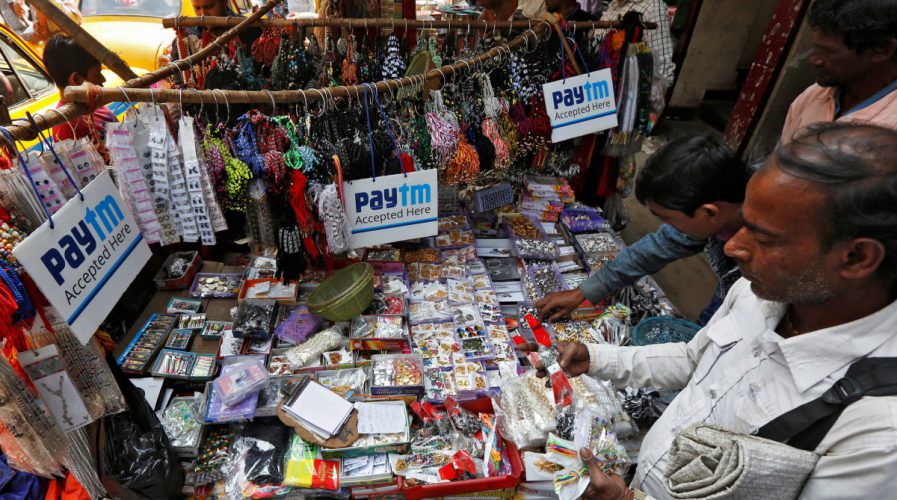
Local small businesses are being pushed out by the entrance of Chinese giants in market. Source: Reuters/Rupak De Chowdhuri
Chinese tech giants are killing small business in Southeast Asia
AS China’s Internet giants move aggressively into all parts of Asia via mergers and acquisitions, and strategic investments, local firms and businesses are in danger of becoming collateral damage in the People’s Republic’s hunt for regional supremacy.
The news in recent months has been preoccupied with news of various investments made by e-commerce giants such as Alibaba, JD.com, Tencent and the like. Just last week, JD.com and Central Group announced a deal to link up the two retail leaders which would give the Chinese company a huge advantage over other local brands.
Richard Liu, JD.com’s chairman and chief executive was reported by the Bangkok Post to have said in a statement, “Working with Thailand’s strongest retail conglomerate, with a massive shopping mall and department store network, gives [JD.com] a huge competitive advantage as we expand further into Southeast Asia.”

JD.com announced a huge deal with local Thai retailer, Central Group, as it looks to enter the local market. Source: AP
Central Group’s CEO, Tos Chirathivat, said that its JD.com venture was a no-brainer that “marks a key step in Central Group’s goal to become Thailand’s online retail leader.”
Obviously, things are not looking great for smaller retailers who don’t have huge Chinese partners to feed them capital and a market of a billion untapped consumers. The Central Group-JD deal is representative of what’s happening all across the Southeast Asian archipelago and the threat posed to local business by encroaching Chinese industry.
SEE ALSO: What e-commerce marketers can learn from China’s Alibaba
According to Pawoot Pongvitayapanu, president of the Thai e-commerce association, small businesses and local e-market players are going to have to work harder to find a niche and differentiate themselves if they’re looking to survive the next few years.
“The deal will not only disrupt Thailand’s e-commerce market, but also nearly every consumer product company in the country,” Pongvitayapanu said to Bangkok Post, adding that for these Chinese companies, local markets represent little more than more buyers and symbolic territory on which to stake claim over their rivals.
China's internet giants rapidly descend on Southeast Asia because it's easier to replicate their biz models there. https://t.co/82Hkv9lDwy
— Resty Woro Yuniar (@restyworo) September 18, 2017
Local Malaysian retailer 11street has relatively muted concerns about China’s moves because of the region’s nascent commerce stage where penetration is still low. In Malaysia where the penetration rate still hovers at around 2.5 percent, meaning that many consumers still have not yet begun turning to e-commerce in earnest.
“This means that there are countless opportunities that still remain untouched, as compared to other more advanced e-commerce markets such as South Korea, which has a 15 percent e-commerce penetration rate,” said Chul-Jin Yoon, 11street Malaysia’s COO, to Tech Wire Asia.
11street Malaysia is an offshoot of a Korean brand, which has given them an edge as the parent company has brought in lots of information about competing in a mature market.
SEE ALSO: Luxury Pavilion – Alibaba’s exclusive hi-tech offering to its biggest spenders
“The e-commerce market in the region is growing quickly and is untapped, which is why global and regional players like Amazon, Alibaba and JD are all coming in here,” said Paul Srivorakul, the group chief CEO of Southeast Asia’s leading e-commerce solutions provideer, aCommerce, to Bangkok Post.
“Thailand and Southeast Asian markets in general are quite local, which is why international players like Alibaba and now JD need to acquire a local player or partner up with local companies.”

The skyline of Singapore’s central business district is seen at dusk. The country is considered the center of business for companies that want to expand into the rest of Southeast Asia. Source: Reuters
The big draw to Southeast Asia lies in its large, growing and connected population. Chinese companies have been edging into the markets by partnering with local companies, which is great for the select few who have won those ventures. Those left out in the cold risk becoming noncompetitive, and could soon exit the market if they are unable to cover costs.
SEE ALSO: China’s JD.com on the market for a local partner in Thailand before end of 2017
The increased entrants into the market could be a good thing for consumers in terms of choice, but in the long term it could lead to a monopoly position for companies like Alibaba and JD.com if they swallow up all the smaller players in the market who cannot benefit from the economies of scale. Furthermore, many local retailers don’t have as sophisticated an e-commerce system as Alibaba or JD.com, leaving them at a distinct disadvantage as the market becomes more and more driven by online shopping.
When asked about whether or not the company would have more concerns moving forward as the industry grows, Yoon said that the company does see the growing prominence of China as an issue. The lack of updated skills and robust e-commerce frameworks will be a determining factor for whether or not Malaysian businesses can weather the oncoming Chinese storm.

CJ Yoon, chief operating officer of 11tstreet Malaysia. Source: 11street Malaysia
To cope with the rising tides, 11street runs programs that helps smaller businesses in Malaysia gain new digital skills and transform their businesses online through their Academy, which is the first ever e-commerce certification program.
“We aim to impart every facet of e-commerce knowledge to help local sellers expand their online businesses. 11street Academy is our long-term commitment to build a strong seller ecosystem locally,” Yoon said.
“One upside to being an online seller is that they are given the opportunity to expand their online business to the overseas market. This in turn, enables them to potentially reach out to more consumers not only locally, but also regionally and globally.”
READ MORE
- Strategies for Democratizing GenAI
- The criticality of endpoint management in cybersecurity and operations
- Ethical AI: The renewed importance of safeguarding data and customer privacy in Generative AI applications
- How Japan balances AI-driven opportunities with cybersecurity needs
- Deploying SASE: Benchmarking your approach
